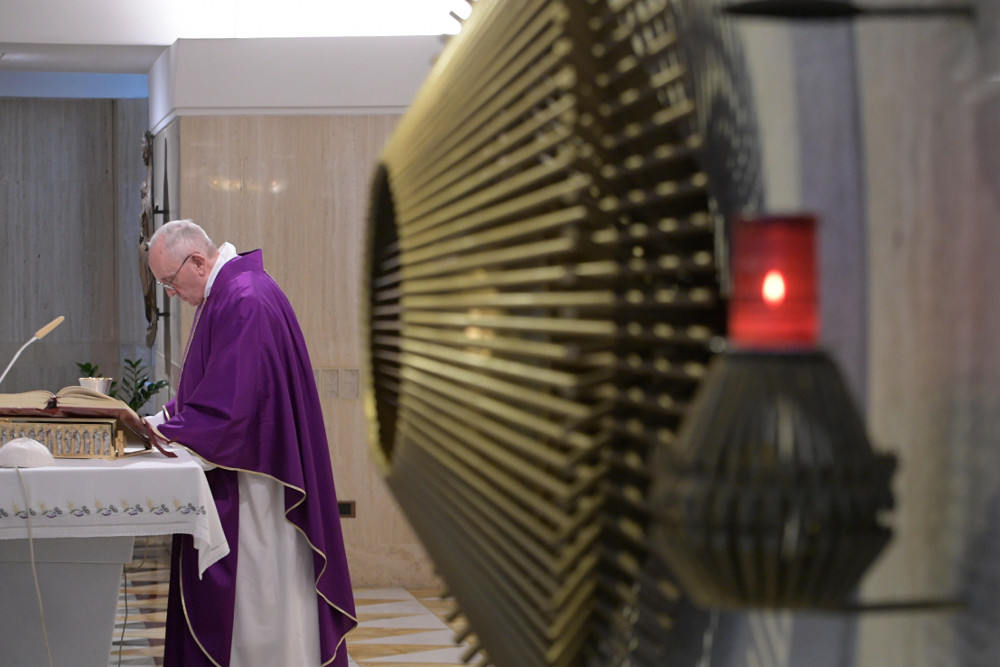
Pope Francis celebrates Mass March 8, 2019, in the chapel of his Vatican residence, the Domus Sanctae Marthae. (CNS/Vatican Media)
Lent is a time to ask for God's grace to chip away at hypocrisy, which is seen in the natural human attempt to appear "worthier than we are," Pope Francis said.
"I must appear to be what I am, and that is our work in Lent," the pope said March 8 during his early morning Mass in the chapel of the Domus Sanctae Marthae.
Pope Francis' homily focused on the day's first reading from the beginning of Isaiah 58. In the passage, the Lord scolds his people for boasting about their fasting while they take advantage of others and quarrel endlessly.
The reading says that what the Lord wants instead is for the people to free the oppressed, feed the hungry, house the homeless and cloth the naked.
The corporal works of mercy are the kind of fasting God wants most, he said. "When you share your bread with someone who is hungry, invite into your home someone who doesn't have one or is a migrant, when you look for clothing for someone who is without — when you focus on that, you are truly fasting."
Advertisement
Lent, the pope said, is a time to practice humility and try to bring the reality of one's life closer to what he or she pretends to be.
Too often, he said, people feel they are righteous because they belong to some association that does good or because they go to Mass every Sunday and are not like "those poor things who don't understand anything."
"They focus only on appearances and never recognize they are sinners, and if you tell them, 'But you're a sinner, too,' (they respond), 'Yes, we all are' and relativize everything," the pope said. "They also try to look like a face on a holy card — all appearance. But when there is this difference between reality and appearance, the Lord uses the adjective 'hypocrite.' "
During the Synod of Bishops on young people in October, he said, "perhaps the thing the young adults insisted on most was the hypocrisy of many Christians, beginning with us — 'the religious professionals.' Young people are struck by this. You might say, 'but they have their defects, too,' and it's true. But on this, they are right."



